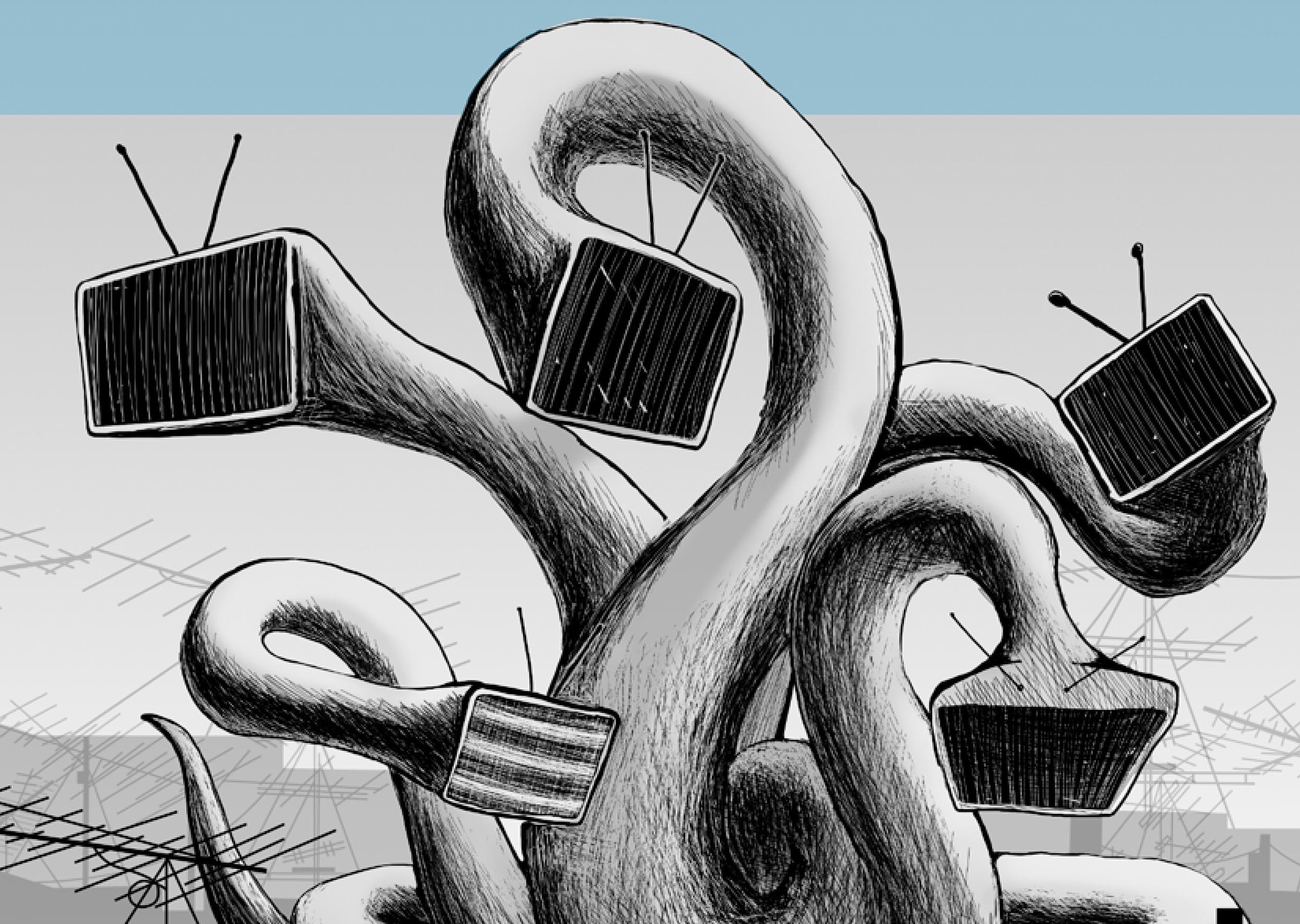This paper is based upon Ukraine’s experience of facing Russian information warfare. It explains how Ukrainian experts come up with solutions to this problem.

This analytical publication was compiled by NGO Internews Ukraine with the support of the European Union and the International Renaissance Foundation within the framework of the Civic Synergy Project and under the auspices of the Ukrainian National Platform of the Eastern Partnership Civil Society Forum. Its content is the exclusive responsibility of the authors and does not necessarily reflect the views of the European Union and the International Renaissance Foundation.
DOWNLOAD THE PAPER FOR FREE HERE
EXECUTIVE SUMMARY
This publication is a follow-up to the book " Words and Wars: Ukraine Facing Kremlin Propaganda" which Internews Ukraine published in 2017 with the support of the EU/IRF Synergy Project.
While in "Words and Wars" we aimed at describing the challenge of Russian information warfare with regard to Ukraine, in this publication we discuss what to do about it. Since this question has become increasingly urgent worldwide, it is important for us to give a perspective based upon Ukrainian experience.
In this publication we argue that:
- Russia is using information as a tool of domination and warfare ; this conclusion can be made from both analyzing Russia's official documents and monitoring its information practices;
- In a situation when information is increasingly weaponized, national governments and parliaments, as well as international community should search for ways to de-weaponize it when it is used with malevolent purposes;
- As security and disarmament were the key principles of Helsinki process in 1970s, which became a milestone for European security, it is important to pursue an approach of disarmament in the information field , i.e. of fighting against aggressive disinformation practices in the information area;
- This "info-disarmament" should take into account that the tools used by the Russian information warfare are extremely flexible.
In this regard we address our policy recommendations to the international community as such , to national governments and parliaments, to Ukrainian government and parliament, to civil society (both national and international) and to EU institutions.
We advise national governments and parliaments to:
- Increase the transparency** of media , in particular online **media , which can ensure that the traceability of malign influences, and that information resources are held accountable;
- Increase the transparency** of political and information campaigns , especially during the election period; ensure that internet platforms** make the technologies providing for this transparency accessible worldwide;
- Increase legislative action against the conscious spread of disinformation and information manipulation;
- Increase legislative action against hate speech , in particular systematic hate speech on Russian information resources;
- Adopt information security strategies and implement them at the national level;
- Impose sanctions (travel ban and asset freeze) on actors of information warfare;
- Impose sanctions on Russian "media" companies that violate previous sanction regimes (i.e. the Russian "media" companies that took over Ukrainian media frequencies in Crimea or Donbas);
- Impose special branding requirements on Russian state-owned "media" (requiring them to disclose that they are "funded by Russian government");
- Better do the "follow the money" research, i.e. checking sources suspected in spreading disinformation, hate speech, with regard to their funding;
- Proceed more systematically with media literacy , not only in formal but also in informal and non-formal education.
We advise the Ukrainian government and parliament to :
- Always follow the approach of telling the truth and explaining. Avoid any temptations to bend the truth;
- Fully implement the Ukrainian " information security doctrine";
- Ensure stable coordination of key public institutions with regard to information security issues; create a government office that would monitor, analyze and respond to information attacks;
- Provide more personnel and resources to these institutions;
- Monitor the efficacy of public policy with regard to measures already taken in order to improve their efficacy in the future;
- Work with technical giants (such as Facebook, Twitter, and Google) to establish partnerships which will take into account Ukrainian concerns;
- Cooperate with civil society on fact checking, monitoring and naming the agents of malign information influencers;
- Facilitate the work of international journalists covering the Ukrainian issues;
- Adopt legislation taking into account security concerns, but also ensuring fundamental rights and freedoms;
- Increase support of public broadcasting;
- Ensure equal access to media, including the oligarchic media.
We also advise the EU to:
- Inject more resources into the EU East StratCom TaskForce;
- Cooperate with national teams (both government and non-government) working to debunk disinformation and analyze malignant Russian information influence;
- Cooperate with non-EU teams (including from Eastern Partnership states) working in this area;
- Make the fight against information warfare a priority within the Eastern Partnership , in particular the EuroNEST Parliamentary Assembly;
- Ensure more EU-Ukraine cooperation under the aegis of Ukraine's integration into the EU digital market;
- Use EU programs (mostly education and research ) to ensure better media literacy education and better research into information threats;
- Use other European instruments (like the European Convention on Transfrontier Television ) as a tool to pressure Russia.
We advise civil society and the media to:
- Implement projects identifying agents of information influence (" Naming and shaming");
- Contribute to strengthening democratic narratives;
- Proceed with more self-regulation and co-regulation , so that the government can adopt initiatives coming from the sector itself;
- Enlarge fact checking practices throughout media and society in general.


